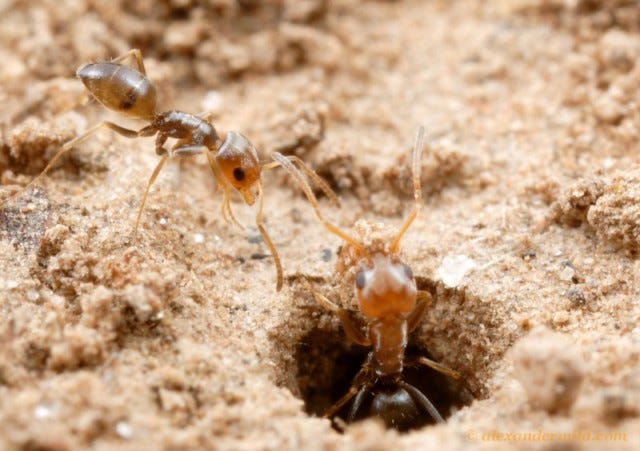Agile Teams don't follow Serve ANT (Servant) Leadership
What is a servant leader and what can we learn from nature to become better leaders
If you have ever been on any type of Agile Scrum Master or Agile Leadership training, you will have heard of the term servant-leader.
In 1970, Robert K. Greenleaf wrote an essay titled ‘The Servant as Leader’. He described a new style of altruistic leadership that had been shaped by his experiences over his career. In the essay, Greenleaf described some of the core skills that are necessary for a servant-leader. These include the importance of awareness, foresight and listening; and the contrasts between coercive, manipulative, and persuasive power.
I re-read the essay recently and excuse the pun but the concepts are just as evergreen in today’s world as they were back in 1970. Whilst the world is more connected now than ever before, loneliness is on the rise. We are in need of more compassionate and selfless leaders. What’s even more remarkable is that Greenleaf had pondered over the essay for 11 years before finally publishing it. Who would have guessed that those ideas from the 1960s would later become the guiding principles for leaders 40 years later?
How does a servant leader measure their impact vs another leader?
Greanleaf stated the best test to recognise a true servant-leader is to answer the following questions:
Do those served grow as persons?
Do they, while being served, become healthier, wiser, freer, more autonomous, more likely themselves to become servants?
If I look back at the most servant-like leaders I’ve had the privilege of working with, the one common trait that comes to mind is their ability to connect with people. They inspire without being overpowering or forceful and are able to lead effortlessly. It’s as if they were naturally gifted with these superpowers. Greenleaf explains that being a strong leader first and then trying to grow your selfless mindset is much more difficult than the other way around. So it’s important that we take every opportunity in our lives to serve others. Whether that be simply helping a colleague with a challenge they might be having or committing a regular amount of time to support a whole community - small selfless steps carry great impact.
But if we want to appreciate large selfless acts, then nature is a great place to look. The other day, I came across some research on ants which left me disappointed in Ant-Man’s abilities in the recent Marvel movies. On the face of it, being able to adapt your size, fly and have super intelligence sound like noble abilities. But the story of the Brazilian Forelius pusillus ant is one that will leave you stunned and amazed.
Picture by Alex Wild
The tiny ants make their homes in the sugar cane fields in Brazil. During the day they are working hard and building their colony. But every evening, whilst most of the ants go beneath the surface, a few ants in the colony stay on the surface. They can spend up to 50 minutes closing off the holes to the colony with no intention of joining their fellow ants. In experiments, scientists found the majority of these ants knowingly sacrifice themselves as most of them never make it alive to the next day. They do this for the greater good of everyone else to prevent predators from breaching their homes.
This is probably the most extreme example of servant-leadership. It’s probably not a bad thing that Agile teams would ever be expected to demonstrate such noble acts. But we must look to build a selfless mindset at any given opportunity if we want to one day become true servant-leaders.
I will leave you with one of my favourite quotes from Mahatma Gandhi “The best way to find yourself is to lose yourself in the service of others.”



